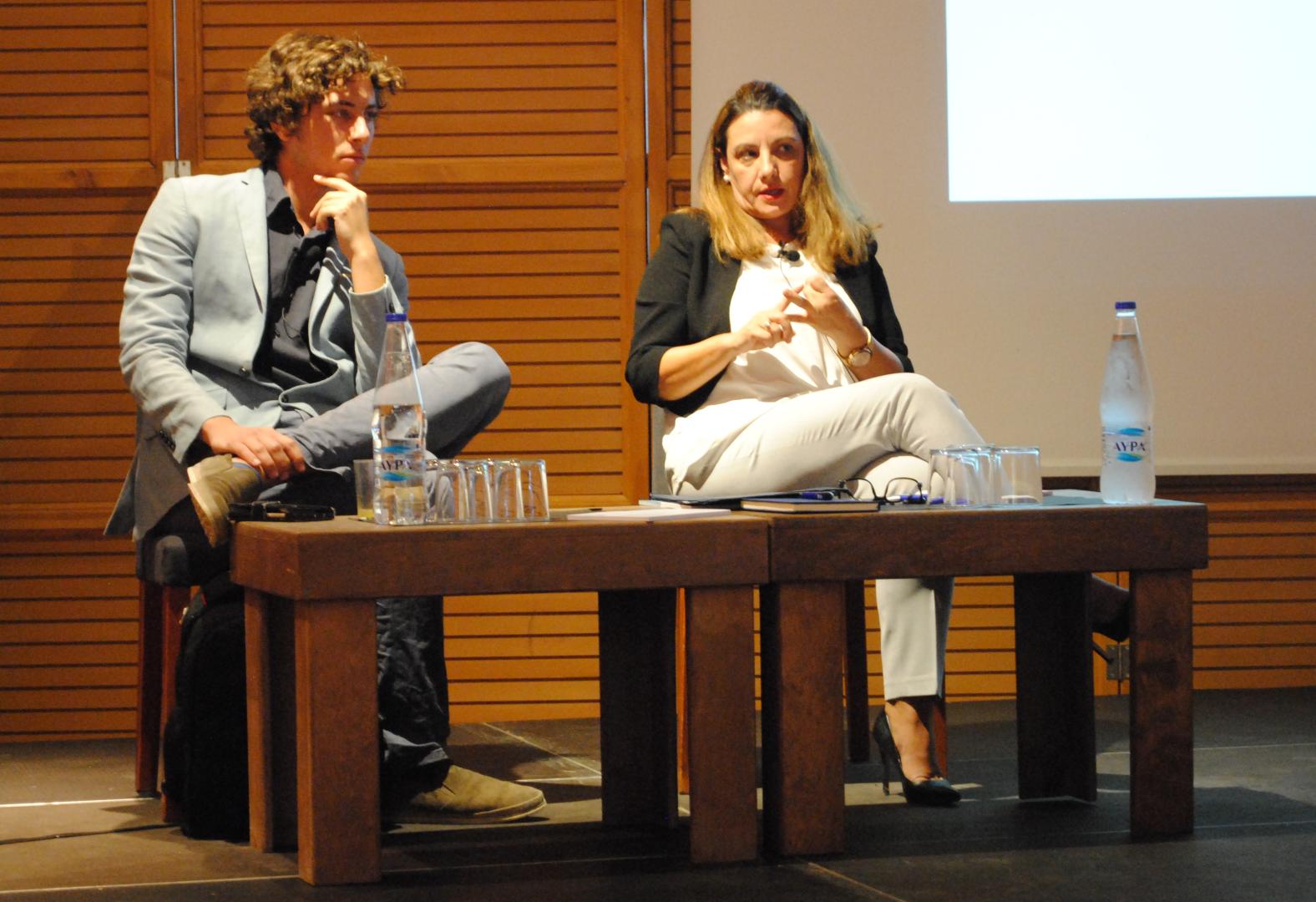In this context the KAS Office Greece and Cyprus organized a conference on Digital Democracy in cooperation with the Laboratory of Industrial and Energy Economics of National Technical University of Athens (LIEE NTUA) and the Open Technology Alliance (GFOSS) in Athens. The main purpose of the event was to provide a platform for discussion and knowledge exchange for Greek and German experts on digitalization. It focussed on the digital transformation of the Greek government and its bureaucracy, e-Governance/open government, data protection in the digital world and innovative entrepreneurship with the perspective of sustainable development in the framework of industry 4.0.
The presentations made it clear: weaknesses, opportunities and potential threats sit side by side when implementing e-Governance in Greece. Thereby the potential for a merit-based recruitment, the beneficial character of other countries’ experiences and new possibilities for start-ups and cloud technologies were emphasized. Simultaneously it was differentiated between Open Government and Black Box Government, whereas the last is characterised by governments intentionally publishing action plans on short notice, so that transparency, accountability and the access to information in hindered. To include more citizens in the political process, new forms of interactive administration have evolved, through which problems can be identified and solutions to solve them be proposed by citizens themselves. Furthermore the provision of civil services e.g. the request for official documents, the exchange between citizens, paying speeding tickets, and the observation of traffic in cities, can be facilitated through mobile apps (such as the ones presented by the startup Novoville).
Regarding Data Protection, the statement was made that the collection and possession of personal data without the individual’s knowledge needs to be considered as an offence on human dignity. However, the protection of the individual’s rights in digital terms proves to be difficult due to three reasons: First, data protection regulations are seldomly read by the users. Second, as there are 28 EU member states, there are 28 different ways of law enforcement. In addition some countries are organised federally, which makes it even more complex to disentangle judicial procedures. Third, the pace at which new technologies evolve is faster than a policymaker’s capacity to implement laws. As a consequence there will most likely always be judicial grey areas. Discussing data protection, the participants focussed on how best to handle anonymity on the Internet and holding users accountable. It was emphasized that it is much harder in general to define hate speech in contrast to freedom of expression. Therefore regulation seems to be a blessing and a curse. Moreover there are cultural differences regarding the definition of it.
Turning the discussion to the dominance of the large Internet companies (Google, Facebook, etc.), it was noted that they have enormous amounts of capital and data at their disposal and are drivers of innovations and new value chains themselves. As a result, smaller companies do have fewer opportunities to compete on a level playing field: large companies are hardly restricted in their actions and have undue leverage. Although regulation does not need to be connoted negatively, it was also highlighted that social platforms opened up the political process to a huge amount of citizens which otherwise would not be able to join. According to some of the speakers, personal data needs to be understood as an online currency in exchange for participation.
Focussing on the country of Greece, Yianna Hormova, Ministry of Digital Governance, named the reduction of bureaucratic processes, thus the implementation of e-Governance, as crucial. If government authorities are not able to fulfil imposed tasks within an appropriate time frame, they reduce their efficiency, which eventually leads to a loss of trust: it diminishes their public reputation, increases the risk of social unrest, finally leading to a higher recognition of populist political parties.














